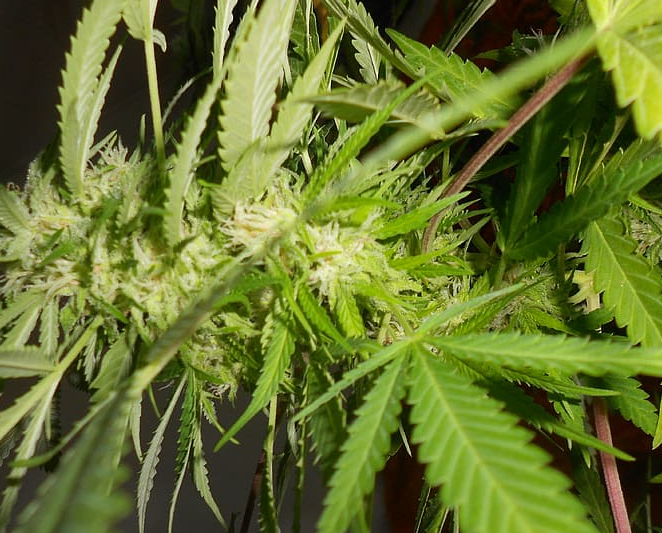Kentucky’s long-anticipated medical marijuana programme is finally taking shape. After a frustrating start to 2024 with no legal access points for patients, the state is now edging closer to its first-ever legal sale of cannabis — possibly just weeks away.
Governor Andy Beshear confirmed on Thursday that sales are set to begin this autumn. With 16,000 Kentuckians already carrying medical recommendations, momentum is building — and so is the cannabis.
A rocky start, now picking up speed
January 1st marked the official start of Kentucky’s MMJ programme, but there was a snag. Patients could legally possess cannabis, but there wasn’t a single dispensary in sight. That changed this week.
The Post Dispensary in Beaver Dam has become the first retailer granted state approval to open its doors. Governor Beshear called it “another step forward” in getting medicine into the hands of people who need it.
“Patients have waited long enough,” he posted on X. “We’re committed to making this a reality as quickly and safely as possible.”
That commitment now has legs. The dispensary will likely stock cannabis grown by Armory Kentucky, a cultivator that received thousands of starter plants just last month. If all goes to plan, those plants will be harvested, cured, and ready for shelves by September.

Why the delay in a legal programme?
It’s not unusual for medical cannabis programmes to have a shaky rollout. Kentucky’s model was particularly awkward — the law allowed patients to possess cannabis with a physician’s recommendation, but the infrastructure to buy it simply didn’t exist yet.
That meant patients technically had to travel out of state to obtain their medicine. Some did, many didn’t, and others just waited.
Several issues slowed the process:
-
Licensing regulations took time to finalise
-
Cultivators couldn’t start growing until facilities were inspected
-
Dispensary approval moved slower than expected
All of that is now shifting. With the first dispensary greenlit, more are expected to follow soon.
Who qualifies for medical cannabis in Kentucky?
Kentucky’s list of qualifying conditions is relatively strict — at least for now. Patients must obtain a certification from a physician licensed in Kentucky and diagnosed with one of the eligible medical issues.
According to the state’s Health and Family Services Cabinet, qualifying conditions include:
| Qualifying Conditions in Kentucky MMJ Programme |
|---|
| Cancer |
| Epilepsy |
| Multiple Sclerosis |
| Chronic Pain (diagnosed by physician) |
| Post-Traumatic Stress Disorder (PTSD) |
| Terminal Illness |
That’s a narrower scope than some states, which allow broader use. Still, advocates hope this is just the beginning.
What’s next for patients and providers?
There’s a buzz of cautious optimism. The cannabis industry in Kentucky is small but motivated. Providers like Armory Kentucky are working fast — and under pressure — to meet demand before the autumn deadline.
Armory’s July 11th shipment of cannabis plants was a significant milestone. These plants typically need 60–75 days to grow before they’re harvested and cured. If all goes smoothly, product could start hitting shelves by October.
Industry insiders say the real bottleneck might not be the growers — it’s the bureaucratic approvals. More dispensaries need to be approved, and lab testing facilities must be certified before any product can legally be sold.
The whole ecosystem has to move together, or it doesn’t move at all.
Beshear has indicated his office is actively monitoring progress. He’s also encouraged regulators to “move quickly but responsibly.”
Political heat and patient hope
It’s no secret that medical marijuana is still a divisive issue in parts of Kentucky. While the governor — a Democrat — has championed the rollout, the Republican-led legislature has been slower to act. Last year, Beshear signed an executive order paving the way for patients to possess cannabis even before lawmakers finalised the framework.
That workaround didn’t sit well with some GOP leaders, but it bought time for patients. And in Beshear’s view, it saved lives.
Now that legal sales are on the horizon, those earlier political battles feel like yesterday’s problem — though likely not forgotten.
Advocates argue the real test is coming this autumn. If dispensaries can meet demand and patients feel satisfied, public sentiment could shift further.
What could legal sales mean for Kentucky’s economy?
Let’s talk numbers, even if they’re early. Medical cannabis isn’t just about healthcare — it’s a revenue stream. States like Missouri and Ohio have reported tens of millions in annual tax revenue from similar programmes.
Kentucky isn’t there yet. But projections suggest the state could generate up to $40 million in tax revenue annually once the programme matures — assuming patient numbers climb and product availability stays consistent.
Early indicators from nearby states:
-
Missouri reported $1.3 billion in cannabis sales in 2023
-
Ohio reached $1 billion in cumulative medical sales in under four years
-
West Virginia, with a slower rollout, passed $80 million in sales this spring
Kentucky won’t match those numbers immediately, but the demand is very real.
Still, some Kentuckians are left in limbo
For now, only a fraction of patients can access legal product. And many parts of the state still have no dispensary in sight.
People in rural areas might have to travel hours to reach a licensed provider. That’s a barrier that health advocates are urging the state to fix quickly.
Beshear’s team is aware. There’s talk of mobile units and telehealth expansions — especially for veterans and patients in underserved counties.
And there’s a public health side to all of this too. As dispensaries begin to open, there’s pressure to launch proper education campaigns: how to dose safely, how to store cannabis at home, what to do if children are exposed accidentally.
The rollout is more than just sales. It’s an entire cultural shift.
